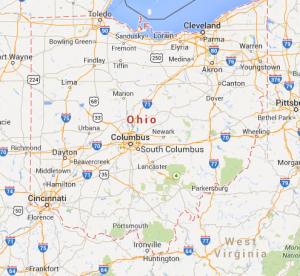Generosity Motivated by Love
By Mark Euritt of Austin, TX, USA

“There was a rich man who was dressed in purple and fine linen and who feasted sumptuously every day. And at his gate lay a poor man named Lazarus, covered with sores, who longed to satisfy his hunger with what fell from the rich man’s table…The poor man died and was carried away by the angels to be with Abraham. The rich man also died and was buried. In Hades, where he was being tormented, he looked up and saw Abraham far away with Lazarus by his side. He called out, ‘Father Abraham, have mercy on me…But Abraham said, ‘Child, remember that during your lifetime you received your good things, and Lazarus in like manner evil things; but now he is comforted here, and you are in agony.’” —Luke 16:19–25 NRSV
Luke tells the story of a rich person and a poor man named Lazarus. The rich person does nothing to aid the suffering Lazarus. When they both die, angels take Lazarus into the “bosom of Abraham” and leave the rich person for torment in Hades. The rich person sees Lazarus with Abraham and asks that Abraham send Lazarus to help him. Abraham in strong language exposes the rich person to the impact of his indifference.
It is not uncommon today to hear and believe good deeds bring rewards and wrongdoings bring punishment. This sentiment was pervasive in first-century Palestine. Wealth determined the measure of one’s righteousness before God; poverty, it was understood, resulted from unfaithfulness to God. Many said the Law of Moses taught this. Many believed the prophets proclaimed it.
Jesus, however, directly challenged this misunderstanding of both the law and the prophets. He lived and taught a message that turned the kingdom upside down. The story of the rich man and Lazarus reinforces a central theme of Luke’s Gospel—God’s unconditional love and grace. The gospels seldom name the poor and downtrodden. Yet this story does not name the wealthy person and does name the poor person! In God’s kingdom, says the gospel, all are known.
Our Enduring Principles reinforce the gospel of love proclaimed by Jesus. They explain whom God calls us to be as Community of Christ. The five Mission Initiatives are our response and the exact opposite to the rich person’s indifference. It is our task to make grace and generosity and the other Enduring Principles forces in our response to make the kingdom of love a reality.
Prayer for Peace
God of justice and mercy, may our motive for generosity be love for others rather than fear for our eternal souls. May we share Christ’s peace as we share our many blessings.
Spiritual Practice: Abolish Poverty, End Suffering
Read and reflect on John 21:15–17 as a meditation. Direct your mind to places where people have no homes. Think of the wars and natural disasters that destroy the homes of refugees. Be aware of the hungry and homeless, who wander the streets or live in shelters. Let the images fill your mind. Offer a prayer for those who suffer. Imagine Christ tending those sheep. Think of ways you might end their suffering as part of your mission. Throughout the day, carry in your mind the voice of Christ saying: “Feed my lambs…tend my sheep…feed my sheep.”
Peace Covenant
Today, God, I will see my sisters and brothers with an “upside down” Jesus perspective.











